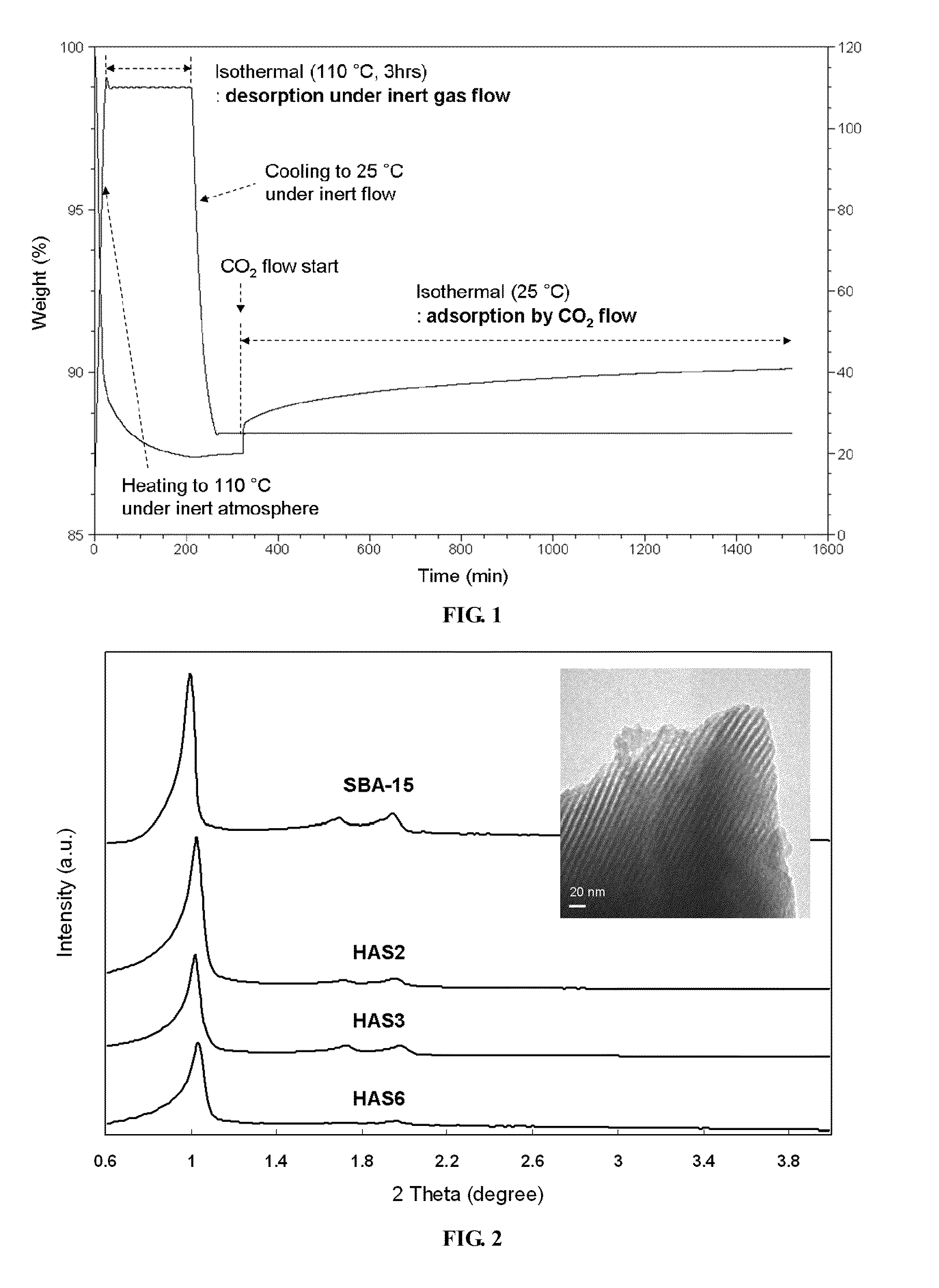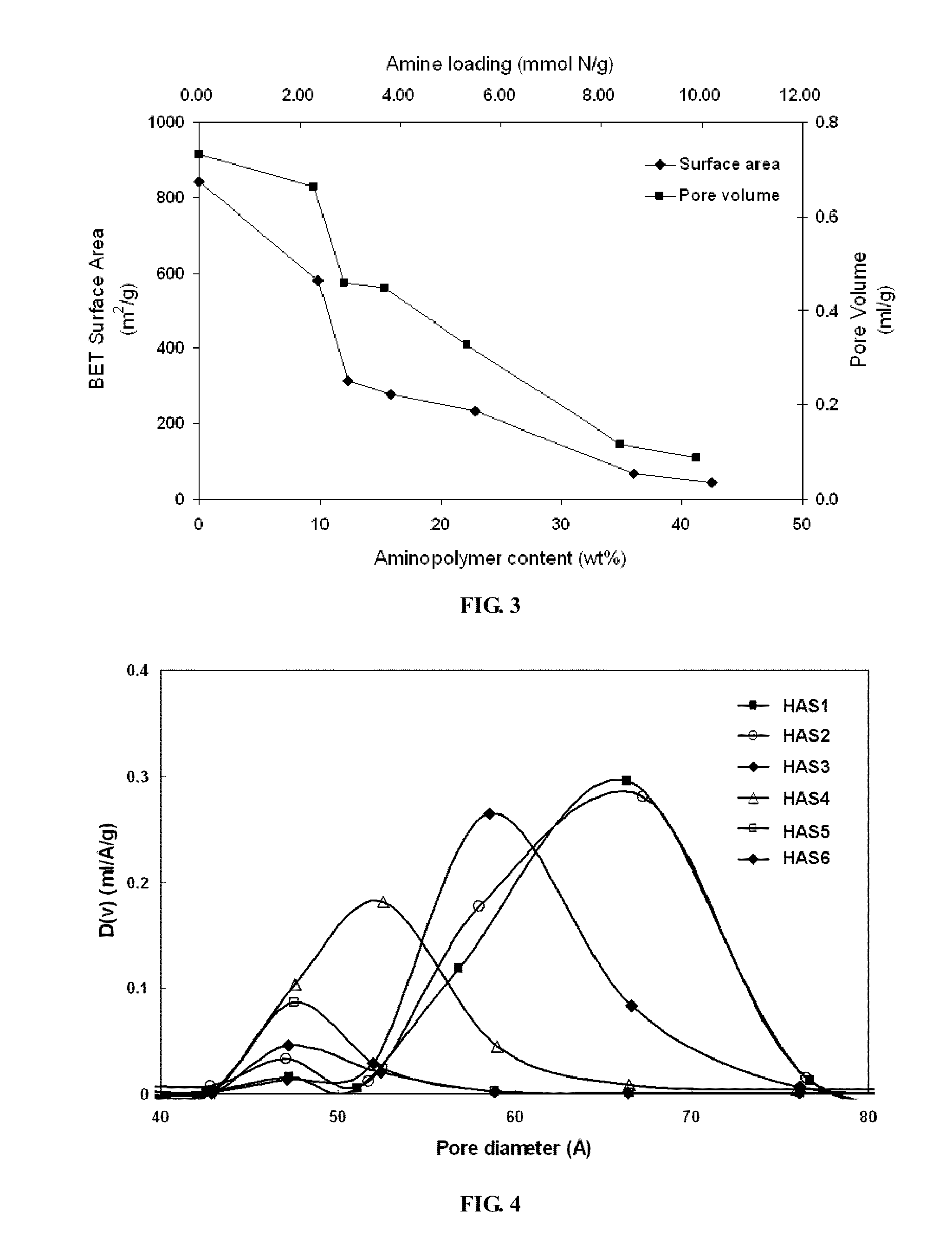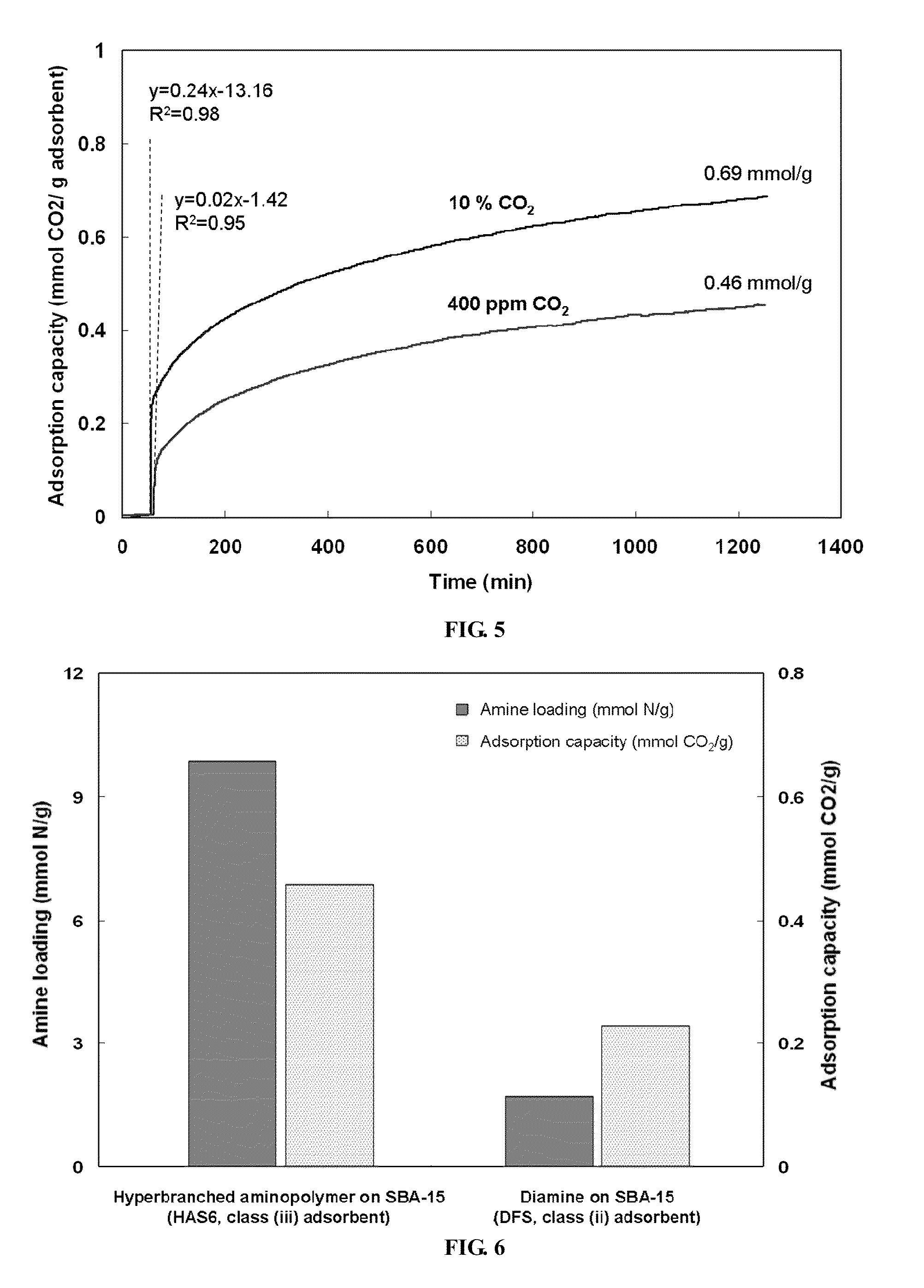Application of amine-tethered solid sorbents to CO2 fixation from air
a technology of solid sorbents and air, applied in the direction of separation processes, dispersed particle separation, chemistry apparatus and processes, etc., can solve the problems of slowing the increase rate of atmospheric co2 concentration, many traditional methods such as cryogenic distillation and membrane application are not expected to be cost-competitiv
- Summary
- Abstract
- Description
- Claims
- Application Information
AI Technical Summary
Benefits of technology
Problems solved by technology
Method used
Image
Examples
Embodiment Construction
OF PREFERRED EMBODIMENTS
2.1. Materials
[0033]Mesoporous silica nanoparticles (SBA-15) were synthesized following previously reported procedures. Specifically, Pluornic 123 (Aldrich) was used as a structure directing agent to template the one-dimensional mesoporous structure. First, 17.9 g of this organic template was dissolved in 561 g of deionized water along with 99.4 g of hydrochloric acid (Fisher). The mixture solution was stirred overnight at room temperature before adding a silica source, i.e., 39.6 g of tetraethyl orthosilicate (TEOS, Aldrich). After 5 minutes of vigorous stirring, the temperature of the precursor solution was elevated to 35° C. and maintained for 20 hours, producing a cloudy solution with a white precipitate. After subsequent heating at 80° C. for 24 hours, this solution was washed with deionized water and filtered to separate the precipitate. The resulting white solid was dried in an oven at 75° C. overnight before calcination. Calcination was performed by t...
PUM
| Property | Measurement | Unit |
|---|---|---|
| temperature | aaaaa | aaaaa |
| temperature | aaaaa | aaaaa |
| temperature | aaaaa | aaaaa |
Abstract
Description
Claims
Application Information
 Login to View More
Login to View More - R&D
- Intellectual Property
- Life Sciences
- Materials
- Tech Scout
- Unparalleled Data Quality
- Higher Quality Content
- 60% Fewer Hallucinations
Browse by: Latest US Patents, China's latest patents, Technical Efficacy Thesaurus, Application Domain, Technology Topic, Popular Technical Reports.
© 2025 PatSnap. All rights reserved.Legal|Privacy policy|Modern Slavery Act Transparency Statement|Sitemap|About US| Contact US: help@patsnap.com



